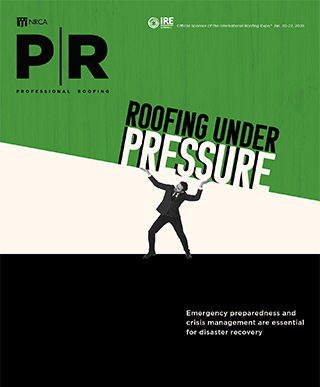
Editor’s note: This article is for general educational purposes only and does not constitute legal advice.
In the construction industry, the competitive bidding process is an essential foundation that ensures a level playing field. Private companies and public agencies rely on the process, which allows competitors to set prices and submit bids in an ethical manner. Unfortunately, there are times when competitors collude and manipulate the bidding process. These practices, which include price fixing and bid rigging, are violations of the Sherman Antitrust Act, and those who engage in them are subject to criminal investigation and prosecution.
The Sherman Antitrust Act
Approved in 1890, the Sherman Antitrust Act was the first law the U.S. Congress passed to prohibit the practice of trusts. A trust is created when stockholders of several corporations transfer their shares to one set of trustees. The stockholders are then entitled to specified shares of the jointly managed companies’ consolidated profits. The law was named for Ohio Sen. John Sherman, who was then chairman of the Senate Finance Committee. He also served as Secretary of the Treasury in the Rutherford B. Hayes administration.
The act was the first federal law to outlaw monopolies and associated business practices. At the time of the law’s passing, many industries were dominated by trusts, which eliminated competition. One example was the Standard Oil Trust, which was formed in 1882 and effectively enabled Standard Oil to monopolize the U.S. oil industry. In 1911, the U.S. Supreme Court determined Standard Oil had violated the Sherman Antitrust Act, and it was divided into 34 separate companies.
Antitrust law prohibits competitors from conspiring with one another to combine, monopolize or restrict trade and commerce. That prohibition includes fixing prices, rigging bids and partaking in other antitrust actions. Violating the Sherman Antitrust Act is considered a felony. Those found guilty can face as much as 10 years in prison, as well as fines of $1 million for individuals and $100 million for companies. In addition, corporations or individuals can be required to make restitution to all victims affected by their actions.
Antitrust violations
Most antitrust violations involve schemes related to price fixing, bid rigging and market allocations. Following are some examples of anti-competitive conduct:
- Price fixing: This occurs when two or more competing sellers collude and agree on what price to charge their customers. For example, they might increase their prices by a set amount or refuse to sell below a given price.
- Bid rigging: This action involves two or more companies discussing their bids and specific dollar amounts to ensure the company they choose will submit the winning bid. The purchaser, who relies on ethical competition, is harmed in this process, having to accept the “lowest bid” that may well be above what the market can bear. Variations include the following:
- Bid suppression: Competitors agree not to bid on a contract or they withdraw an already submitted bid, ensuring a designated party wins the contract.
- Bid rotation: In this scheme, all competitors bid but take turns submitting the lowest bid.
- Complementary bidding: Some competitors intentionally bid high or fail to meet the requirements and lose a contract to a company with whom they are conspiring.
- Market or customer allocation: This occurs when two or more companies divide their customers—often by geography or demographics—to eliminate or at least reduce competition.
Co-conspirators of these practices benefit in a number of ways:
- The winning contractor will offer a subcontract to one or more of the losing contractors.
- A losing contractor is promised to win an upcoming contract in return for fraudulent bids on the current one.
- Losing contractors are paid off with cash, checks or material goods, usually disguised as legitimate professional exchanges.
These practices often are done covertly with participants appearing to be competitors while they manipulate the system. These fraudsters deprive customers of genuine competition and force them to pay more for services and products. All such actions are considered collusion and can lead to criminal prosecution.
Collusion
Those who receive bids often can spot bid rigging and antitrust violations if they look for certain actions and patterns, such as:
- Bids are markedly higher than the agency estimated for the contract or much higher than similar bids by some companies for other contracts.
- Different companies submit identical bids either for lump sums or individual line items.
- Bids are altered at the last minute.
- The winning bid is much lower than others.
- A company submits different bids for specific line items in multiple contracts in a given time period.
- Some qualified contractors do not bid, especially after initially showing interest.
- Most bids are overly high even when companies are struggling to find work.
- Competitors are noticed to be meeting before or after bid submissions.
There also often are clear signs of price fixing and market allocation, such as:
- Competitors announce price increases for identical amounts around the same time.
- Competitors suddenly eliminate or reduce discounts at the same time.
- Competitors’ prices seem to be the same, and no one will negotiate.
- The same contractor seems to win the contracts in a given geographical area.
- Contractors who should be bidding on a given project are not doing so.
In addition, it is interesting to note some industries are more susceptible to collusion, and the following specific conditions can breed it:
- Competitors know one another well, often by working together in the past, through trade associations and via social connections. They build a trust that can lead to collusion.
- When there are fewer competitors, they can easily communicate about prices and bids, so collusion is more likely to occur.
- When products are standardized, competitors easily can agree on pricing structures. Also, when a specified product cannot be substituted with others, the odds of collusion increase.
It is important to realize that though the above-mentioned examples can appear to be collusion, they may not be. There are other reasons contractors might submit an overly high bid or fail to bid at all. For example, the scope of work may have been beyond the ability of the contractor or the timeframe for the project may not have fit within the contractor’s schedule. Only when contractors take such action as part of an agreement with competitors is it considered an antitrust violation.
Prevention strategies
Procurement officials are wise to always be watchful of collusion activities among bidders. They are trained to recognize the signs and prevent conspiratorial acts. To combat these activities, they use the following strategies:
- They make it more challenging for bidders to conspire by expanding the list of bidders. It is in the buyer’s best interest to acquire bids from as many contractors as possible. The more bidders, the more difficult it is for bidders to control the process. Collusion is more likely to occur if the number of bidders is five or fewer.
- They ensure their purchasing department staff know the indicators of price fixing, bid rigging and other colluding activities.
- They require bidders to read, sign and submit affidavits that state bidders are aware of the Sherman Antitrust Act violation penalties and have not colluded.
- They maintain bid lists, awards, abstracts and other procurement records so they can review procurement history. This process is invaluable if there is suspicion of bid rotation or allocation.
- They do not hesitate to ask questions if bidders submit prices that seem unreasonable. Experienced procurement officials also stay informed about the market and know prices are competitive.
In addition to procurement officials remaining on alert, contractors should refrain from interacting with competitors that partake in antitrust activities. If you are approached by competitors to fix prices or rig bids, you should decline such offers, seek legal advice and consider reporting the request to antitrust authorities.
Procurement Collusion Strike Force
The Procurement Collusion Strike Force plays a critical role in combating bid rigging, price fixing, and other antitrust crimes and schemes, working to prevent them in government program funding, grants and procurement. The strike force manages this national response in all areas of government—local, state and federal.
The strike force is wide-ranging and composed of the U.S. Department of Justice Antitrust Division, Federal Bureau of Investigation, several U.S. Attorneys’ Offices and Inspectors General for various federal agencies. Strike force agents and attorneys work to uncover and prosecute antitrust violations. They provide training to auditors, procurement officials and law enforcement officers to help them identify and prevent fraud and collusion throughout the competitive bidding process. They also play a role in enforcement by assisting in investigations and prosecuting companies and individuals suspected of these practices.
Based on data from October 2023, there are more than 31,000 trained strike force agents and procurement officials with more than 100,000 open investigations. Their efforts have resulted in more than 50 trial convictions and guilty pleas, as well as more than $65 million in restitution and fines.
Antitrust convictions
An antitrust conviction can be serious; consider these examples of convictions and prosecutions from 2023:
- An owner of multiple construction companies received a sentence of 27 months in prison and was fined $1.75 million for his role in defrauding the U.S. through government contracts related to programs administered by the Small Business Administration.
- A business owner was sentenced to 15 months in prison and restitution of $1,062,155. He was convicted of bid rigging and fraud schemes that targeted public and private entities in Connecticut, including the City of Hartford, Yale University and Stamford Hospital. His sentencing was the seventh related to an investigation of the insulation contracting industry.
- A Northern District of Georgia federal jury convicted three military contractors of conspiring to defraud the U.S. by preparing and procuring bogus quotes for government contracts totaling more than $7.8 million. Months later, one of the defendants was sentenced to six months in prison and two years of supervised release. He was ordered to pay a criminal fine of $250,000. Another defendant was sentenced to 12 months of home confinement with three years of probation and ordered to complete 100 hours of community service. The final conspirator was sentenced to four months in prison and two years of supervised release. He was ordered to pay a criminal fine of $50,000.
- A former president of a paving and asphalt contractor was sentenced to three years of probation with six months of home detention and fined $27,000 for attempting to monopolize the highway crack-sealing services market in Montana and Wyoming.
- A California construction company owner was sentenced to 78 months in prison. He was ordered to pay more than $980,000 in restitution for his participation in a bribery and bid-rigging scheme for California Department of Transportation improvement and repair contracts. Those who conspired with him were also convicted. One defendant received a sentence of 49 months in prison and was ordered to pay more than $980,000 in restitution. The other defendant received a sentence of 45 months in prison and was ordered to pay almost $800,000 in restitution.
- Two military contractors were sentenced for their roles in a bid-rigging scheme related to maintaining and repairing military tactical vehicles in Texas. Their actions played out over several years and involved more than $17 million. The sentences ranged from 6 to 18 months in prison and fines up to $300,000.
- A federal judge in Austin, Texas, ordered a company based in South Korea to pay a nearly $9 million criminal fine and restitution for committing fraud and rigging bids related to subcontract work at U.S. military installations in South Korea.
- After a court-authorized wiretap investigation, a federal grand jury in Boise, Idaho, indicted two executives of competing companies for violating the Sherman Antitrust Act by conspiring to rig bids and allocate territories related to U.S. Forest Service contracts. They were also convicted of conspiring to commit wire fraud and committing wire fraud.
Final thoughts
Bidding on contracts and securing work on federal projects can be daunting. Competition can be fierce, and winning a big contract can sometimes seem impossible. Under these conditions, even the most upstanding contractors might be lured into price fixing, bid rigging and other acts of conspiracy.
However, it is critical for industry professionals to resist the temptation to manipulate the bidding process. Failure to follow the ethical parameters can lead to inflated prices and unfair competition for consumers and government agencies in addition to legal prosecution for those involved.
TRENT COTNEY is a partner and practice group leader at the law firm Adams and Reese LLP, Tampa, Fla., and NRCA’s general counsel.



